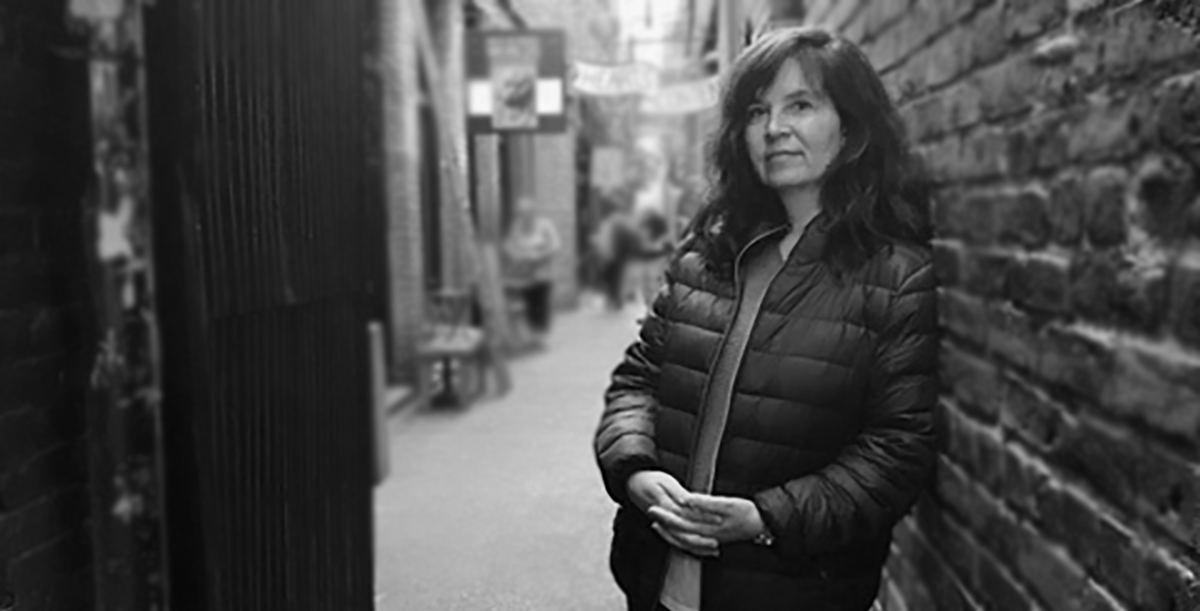Konstantina Sozou-Kyrkou

Konstantina Sozou-Kyrkou was born to and raised by a family of retailers and farmers in a small mountainous village in western Greece. When she was seventeen she moved to Athens for university studies and then, after studying various subjects (from business administration to painting, from drama to ESL teaching) and changing job several times, she settled into working as an ESL teacher at language institutes and tutoring at home, got married and gave birth to two kids. She’s been living in a southern suburb of Athens since then, still teaching English while being a busy mother and a homemaker, always mulling over ideas for stories to be put down on paper, to be given the breath of ‘life’, and (hopefully) to be able to challenge and entertain readers.
Konstantina first started writing short stories while taking a course for her BA (Hons) Literature with the Open University, which stirred her into doing an MA (Creative Writing) with Lancaster University. She hadn’t written anything apart from some rants in Greek before that, but she is now writing in Greek too (actually, she writes in both languages, and though this may sound eerie, whenever she translates a particular story written in one language into another, the end product may differ surprisingly, as language itself leads her to different paths each time). Her stories have been published online and in print in several literary magazines and anthologies, while some have won competitions (in both languages), the most recent one being her story Feta and Watermelon with Fantastic Books Publishing (in an international short story competition they organised under the theme of women’s strength). It was chosen among six other stories and published in The Dummies’ Guide to Serial Killing. She also published her first short story collection, Black Greek Coffee (most of the stories there have either been published online or in print or won competitions) with Troubadour, which is her first effort to capture women’s and children’s inferior position in a twentieth-century male-dominated society in rural Greece, based on personal experience or stories she’s heard from relatives and friends. It’s not autobiography or biography, but has a lot of autobiographical elements to it. She’s evolved as a writer since then and writes about living in modern Athens now, using more subtext, insinuating things, ‘showing’ rather than ‘telling’ and endowing them with a more ‘surreal’ feel (well, not all of them). It’s a perennial struggle to try to find new ways to capture reality, to shed light on things in an original way, to find your own voice.
Q: If you could travel in the past, which one of the great writers would you like to meet and why?
A: I would certainly like to meet Raymond Carver, Katherine Mansfield, or Tobias Wolff (still alive) for their effective word choice and subtext, for creating ambiguity and duplicity in their short stories, for the particular, cynical tone of voice of their characters, for creating such astonishing fiction while making it seem effortless, for making the mundane and particular seem so universal, so very important and revealing of human nature itself.
Q: What is the first book you remember reading, or having read to you as a child?
A: The first book I’ve ever read and loved was ‘Uncle Tom’s Cabin’ by Harriet Beecher Stowe, translated into Greek.
Q: What superpower would you like to have and why?
A: Of course (as embarrassing as it may seem), to be able to read people’s minds, though as a writer I’ve been practising that by studying their facial expressions, body language, intonation, particular choice of words or even hesitation and silences (never underestimate silence). It’s an interesting skill, actually, so why spoil it by turning it into a ‘wish come true?’















